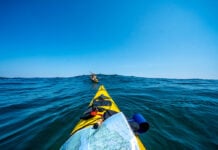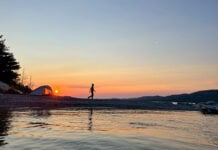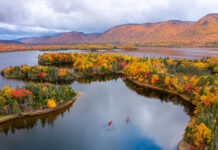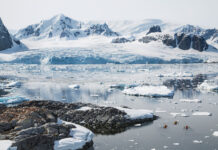Don’t believe everything you read on the Internet.
It was a blog post by champion whitewater kayaker Eric Jackson that sucked me in. EJ did a quick calculation and figured he’d spent nearly 2,000 hours last year kayaking—nearly a year’s worth of 40-hour work weeks playing outdoors.
Awesome, I thought. What a great life.
Then EJ announced that he was “turning over a new leaf.” He’d been chatting with a friend who’d pointed out there’s no social utility to all that time on the water pursuing his latest passion, kayak fishing.
“What if all these fishermen, you included, put the same amount of energy into doing something productive that would help others, instead of such a selfish activity?” his friend asked.
EJ couldn’t come up with a good answer, so he decided to completely overhaul his life. He’d re-dedicate himself to higher pursuits: “simplify my life—eliminating the things that have no meaning, and are just time wasters.”
Holy shit, I thought, EJ’s so right! Think of everything humanity could accomplish if we didn’t squander so much time on unproductive activities like kayaking. I should do something more meaningful with my time.
I was 300 words into the post before I got the joke.
“All I can do is start today, on April 1, 2015, and try to make the world a better place,” he wrote.
Instead of laughing at the clever April fool’s joke, I stared at my computer in shock. I couldn’t believe how easily my rational brain had been duped by an argument that my heart knew all along was utter hogwash.
The truth is that EJ’s post is no joke. We live in a world that sends us similar messages every day.
A recent newspaper article made the same point about mountain climbing, calling it “one of the most damagingly popular forms of empty self-absorption of our age,” and “the ultimate act of pure meaningless egotism.” It was a lot like EJ’s argument, except the columnist was dead serious.
It’s not like we don’t have enough barriers to connecting with our beleaguered planet. The last thing we need is to be condemned or self- critical for doing what we love—what humans actually evolved to do. For hundreds of thousands of years, before this flash in the pan we call history, we were all nomads. Activities like traveling in the wilderness in kayaks and canoes, and fishing, were how we spent our days.
Now the forces of consumer society are pushing us so hard into allegedly more productive activities that most kids don’t even get the recommended one hour of physical exercise each day.
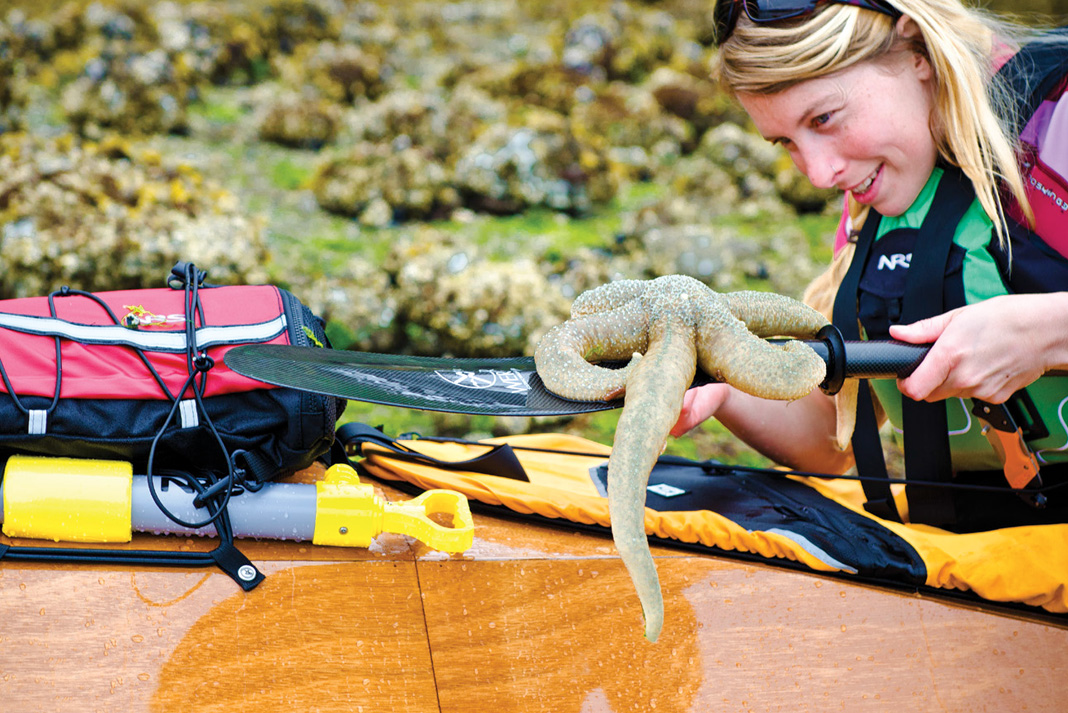
“Outdoor activities are critical to society today,” EJ rants at the end of his post. This time he’s being genuine. “Kids NEED to understand how to live outdoors, to appreciate wildlife, to understand fish, birds, animals, if they are going to protect them… Get out there, take your kids, remember that Mother Earth isn’t something you learn about on TV.”
If I truly want to help the world, the answer isn’t to spend more time at home working. It’s to augment my paddling and family outings with activities that bring us even closer to the natural world, like fishing, birdwatching, plant identification or stargazing.
EJ ended his post with a video compilation of his past year— paragliding, mountain biking, paddling and hauling trophy bass into his kayak with an ear-to-ear smile.
I resolved then and there to focus on the best uses of my time. This summer I learned to sail yachts, bought a second paddleboard, ticked off 50 days on the water, and took my kids on their longest canoe camping trip yet.

Subscribe to Paddling Magazine and get 25 years of digital magazine archives including our legacy titles: Rapid, Adventure Kayak and Canoeroots.



